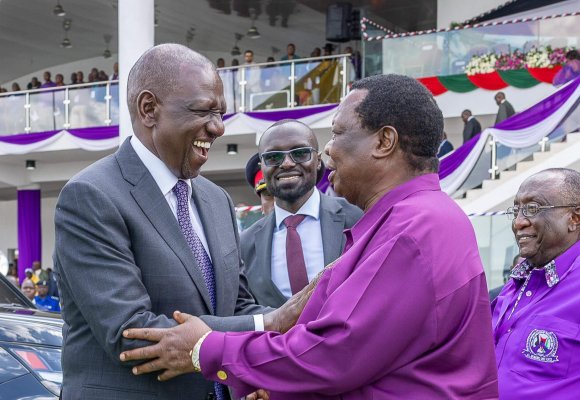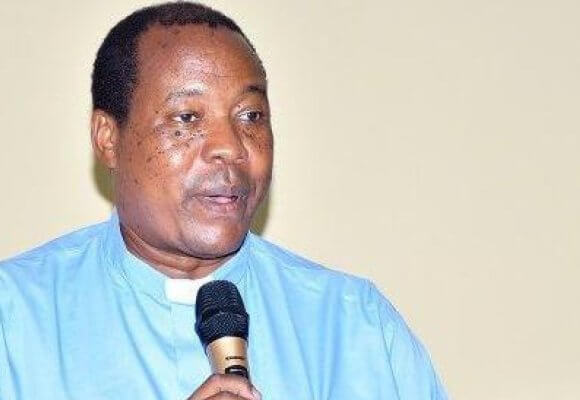|
LISTEN TO THIS THE AFRICANA VOICE ARTICLE NOW
Getting your Trinity Audio player ready...
|
Fuel Prices in Kenya Hit Record High of Sh200 Per Litre
Kenyans are now paying a record Sh200 per litre for fuel, up Sh20 from the previous review. This is the highest price ever recorded in the country, and it is sure to have a knock-on effect on the cost of living.
EPRA, in a statement to newsrooms on Thursday night, disclosed that Super Petrol prices have now increased by Ksh.16.96, Diesel rises by Ksh.21.32, while Kerosene climbs the highest to Ksh.33.13 per litre.
The changes now mean Super Petrol in Nairobi will now be retailing at Ksh.211.64, Diesel at Ksh.200.99, and Kerosene will be Ksh.202.61 per litre.
The new prices will take effect from 15 September and will remain in place until 14 October.
Before the new review, petrol was retailing at Sh194.68 in Nairobi, diesel at Sh179.67 and kerosene at Sh169.48.
Fuel is used to transport food and other goods, so the higher prices will be passed on to consumers. This means that Kenyans can expect to pay more for everything from groceries to transportation to electricity.
Already, on Friday the Matatu Owners Association announced a 20pc increase in bus fares following a hike in fuel prices. This is according to the chairperson, Albert Karakacha.
The Energy and Petroleum Regulatory Authority (EPRA) Director-General Daniel Kiptoo attributed the high prices to a number of factors, including production cuts by OPEC, sanctions on Russian ships and increased demand for diesel and kerosene in Europe.
He said the government had successfully renegotiated premiums with the three Gulf oil companies that supply Kenya with fuel, but that the high global prices were beyond the government’s control.
Auditor-General Nancy Gathungu has raised questions about how the government used billions of shillings collected from taxpayers to subsidise fuel prices, after officials failed to provide documents supporting the spending.
According to data from the Kenya National Bureau of Statistics (KNBS), the cost of food and other essential goods has been rising sharply in recent months.
Sugar prices have increased by 61.4% over the past year, beans by 27.9%, maize flour by 9.6% and cooking oil by 18.5%.
The cost of electricity, cooking gas and diesel has also increased significantly.
This is putting a strain on household budgets and businesses, and raising concerns about the impact on economic growth.
Amid the debate about the increased fuel prices and cost of production, Trade Minister Moses Kuria told Kenyans to plan for higher fuel prices every month until next year.
“Global Crude Prices are on an upward trajectory. For planning purposes expect pump prices to go up by Ksh 10 every month till February,” CS Kuria said on X.
On X, President William Ruto’s chief economic adviser David Ndii warned Kenyans that his boss’s economic plan would be “painful” and “may not work.” He added that he would not sell false hope to the people.
“The pain is heavy but there is nothing we can do,” CS Davis Chirchir told the National Assembly Energy committee over the increase in fuel prices.
Kenyans on social media erupted in anger over the recent spike in fuel prices, blaming President William Ruto and his government for overburdening them with higher costs. They called upon former Prime Minister and Azimio opposition party leader Raila Odinga to announce maandamano to protest the surging cost of living and fuel prices.
Kenyans were particularly incensed by the fact that Ruto and his allies had only recently been attacking former President Uhuru Kenyatta for rising fuel prices, promising to bring them down if elected.
Social media platforms are now flooded with videos of Ruto and his allies blaming Kenyatta for Kenya’s economic woes during the 2022 election campaign.
Kenyans have wasted no time in reposting these videos, highlighting Ruto’s hypocrisy and his failure to deliver on his promises.
“These people don’t understand the damage they are doing to the people and economy of Kenya na hizi taxes wanaongeza usiku na mchana,” Ruto said while speaking at the Sugoi Roadside Market along Turbo Road in the days leading up to the polls.
In another campaign forum, Ruto blamed the rising cost of fuel on cartels and wondered how Kenya’s prices were higher than Uganda’s yet they import their fuel through Kenya.
“Ile cartel ya ufisadi iko pale ndio inasababisha bei ya mafuta kuzidi bei ya mafuta Uganda. Na hiyo mafuta inapitia Kenya ikienda Uganda. Jameni unaeza kutueleza vipi ati bei ya mafuta hapa Kenya, ambapo ni karibu na mahali mafuta inatoka, iko bei juu kuliko Uganda na Kampala inachukua mafuta kutoka hapa kwetu,” he said.
“That is the explanation Kenyans want to know. The corruption cartels at the Ministry of Petroleum should explain to Kenyans why dealers have increased their profits from Ksh.9 to Ksh.12.”
Prime Cabinet Secretary Musalia Mudavadi found himself on the receiving end of public scrutiny after a relic from his past emerged: a video of him lambasting EPRA for fuel price hikes.
“The Ministry of Energy has failed Kenyans and should take responsibility for this unpleasant situation. They should take cognizant of the fact that it is the ordinary citizen who bears the brunt of high petroleum prices,” Mudavadi says in the video.
“Kenyans are in great distress. Families do not know when the next meal will come from and even when they get a meal it is not enough to satisfy the household needs. Clearly, with the increase in the price of fuel, the situation is likely to get worse as prices of food soar.”
Kiharu Member of Parliament Ndindi Nyoro, a close Ruto ally, was also not spared from the backlash.
“It is now so despicable, insensitive, inconsiderate for the government that we elected that their pre-occupation every day is to add the cost of living to the people of Kenya and I want to remind the President (Uhuru) tafadhali anagalia Wakenya wale walikuchagua; wanaumia,” Nyoro was captured saying in another past video.
Majority of Kenyans Believe Country Headed in Wrong Direction, Survey Shows
A new survey by research firm Infotrak shows that most Kenyans believe the country is headed in the wrong direction.
The survey, conducted on September 10, found that 53% of Kenyans think the country is doing poorly, while 30% believe it is on the right track. Thirteen percent of respondents were unsure, and 0.3% said they did not know.
Across all regions surveyed, a majority of Kenyans believe the country is headed in the wrong direction.
The top concerns Kenyans have about the state of the nation are the high cost of living, unemployment, and affordable quality education.
In addition, 40% of respondents gave President Ruto an average performance rating in his first year in office, while 30% gave him a poor rating. Twenty-one percent think he has done well, and 9% believe his performance has been excellent.
The survey was conducted using computer-assisted telephone interviews with a sample size of 1,000 Kenyans. The majority of the sample was from the Rift Valley region, followed by Eastern and Central regions.
















































LEAVE A COMMENT
You must be logged in to post a comment.